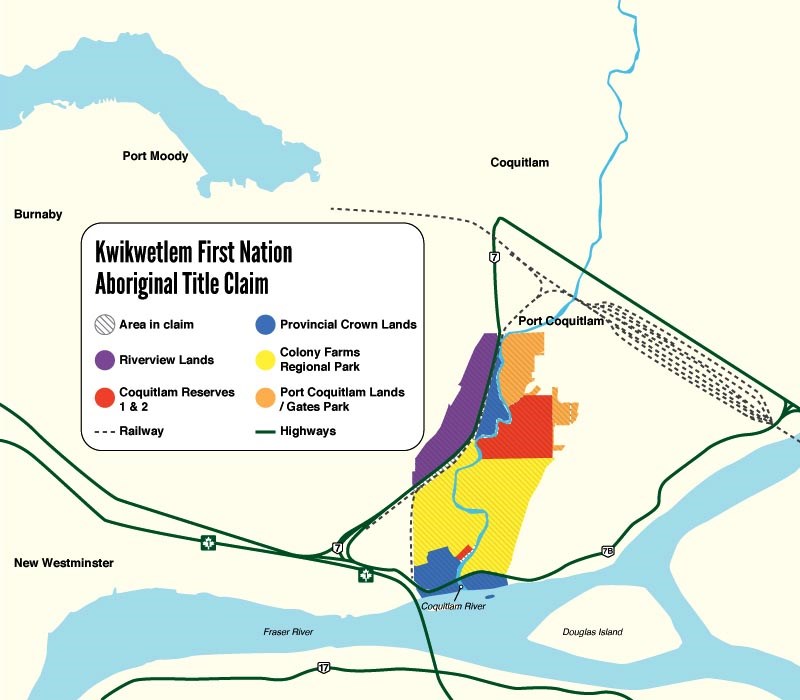The Kwikwetlem First Nation's bid to win title over more than 1,000 acres of land, including regional and city parks plus the valuable 244-acre Riverview Hospital site, is worth keeping an eye on.
The claim filed in BC Supreme Court last Tuesday is an attempt by KFN to determine once and for all its status in land-use decisions made by local, regional and provincial governments.
This is not the first time a native group has gone to the courts to have its rights recognized. In a landmark Supreme Court decision, the Tsilhqot'in won aboriginal title over a large swath of land in B.C.'s central Interior and the right to have a say in economic activity.
Locally, the KFN hope to get similar rights, and a piece of the action, in future Riverview development.
Many of the arguments have merit: The Kwikwetlem had no say in the development of mental health facilities on adjacent properties, they obviously lived here before B.C. was colonized, their land is mostly soggy bog and they have been hemmed in by development that is not of their choosing.
Apparently, KFN also tried to negotiate through the BC Treaty Commission process but was deemed too small. Finally, when the group felt its rights were being ignored, it believed had no other choice but to head to the courts.
In the case of the KFN, a small band of about 80 people, half living on reserve, the effort to get noticed by government has been long and complicated.
But some might be wondering whether the case is merely an attempt to get leverage as there is a provision that gives the government a year to negotiate economic benefits conferred by aboriginal title.
These negotiations often take place behind the scenes, as in the case when the band received $8.2 million in economic benefits for a deal with the province regarding some Burke Mountain lands without having to prove land title in court.
Certainly, the KFN deserve their day in court but, at the same time, the court case may also be an opportunity for civic, regional and provincial governments to settle these issues once and for all in an open and transparent process.



